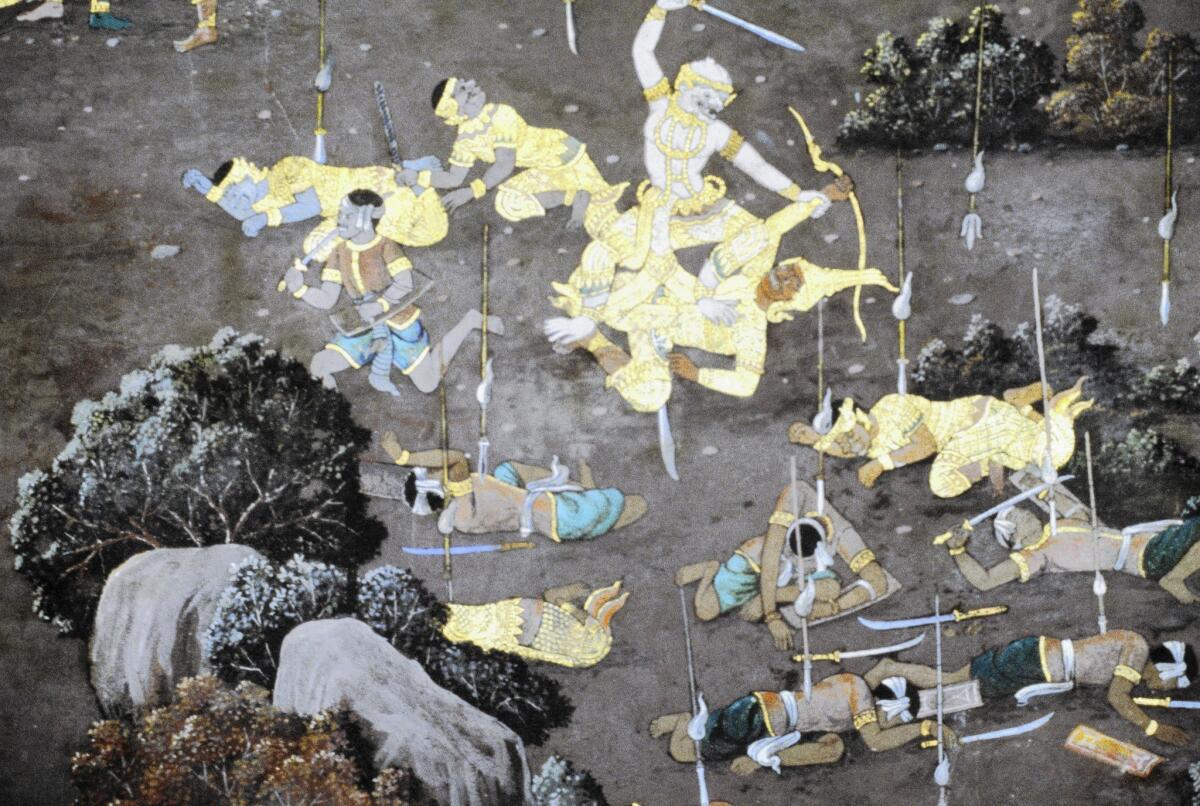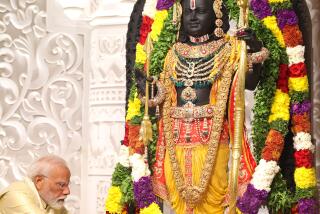India’s tough defamation, public order laws fell another book

MUMBAI, India — The Hindu epic “Ramayana” features a 10-headed villain, a magical golden deer and the flying monkey god Hanuman. But when an American religion scholar described the canonical poem as fictional, some religious conservatives were shocked.
Angered by what they called an insulting, inaccurate and sexualized depiction of India’s predominant faith by University of Chicago divinity professor Wendy Doniger, Hindu activists waged a four-year court battle against her book “The Hindus: An Alternative History.” This month, Doniger’s India publisher, a branch of Penguin Random House, agreed to settle the lawsuit by recalling and destroying all unsold copies of the book.
For Indian writers and intellectuals, it was the latest worrisome setback for the printed word in a country that likes to think of itself as a freewheeling, pluralistic democracy.
In recent years, frank portrayals of Mohandas K. Gandhi, secretive tycoons, Hindu hard-liners and the national airline have been withdrawn by publishers or partially banned by authorities, often under pressure from conservatives.
India’s constitution enshrines free speech, but its laws against defamation and upsetting the public order are broad, leading a growing number of publishers — storied houses such as Penguin Books India included — to shy away from books that carry even a whiff of controversy.
“In India you publish at your peril,” Pratap Bhanu Mehta, president of a prominent think tank, wrote in the Indian Express. He said the decision to “pulp” (the industry term for destroy) Doniger’s book was “the pulping of liberal India.”
Penguin Books India defended the decision but blasted Section 295A of the Indian penal code, a pre-independence law that prohibits acts that “outrage religious feelings.” The company said in a statement that the growing use of the provision “will make it increasingly difficult for any Indian publisher to uphold international standards of free expression without deliberately placing itself outside the law.”
But many say the problem lies not only with the law, but also with publishers that are unwilling to challenge it in court. Lawsuits expose publishers and authors to potential criminal penalties and massive fines, and cases can take years — marked by hefty lawyers’ bills — to wind through India’s tortuous legal system.
“It’s disheartening,” said Ashok Malik, a prominent columnist. “You can’t force publishers to fight these legal challenges, but the fact is that if publishers themselves don’t fight we could end up with really blandly written nonfiction in this country, where nothing controversial is touched or looked at very carefully.”
Part of the publishers’ calculation is economic, Malik said. A successful nonfiction title might sell at most a few thousand copies in India, hardly enough to justify a protracted legal fight.
He contrasted Penguin’s stance on “The Hindus” with its more robust defense of Salman Rushdie’s 1988 novel “The Satanic Verses,” a worldwide bestseller, which was banned in India after Muslim fundamentalists issued threats against the company and forced Rushdie into hiding.
Powerful political and business figures have used the anti-defamation laws to block books seen as even remotely critical of their activities.
Last year, the publisher Bloomsbury withdrew a rare insider account of the troubles at the state-owned airline, Air India, penned by the company’s former top boss, Jitender Bhargava. Bloomsbury bowed to a defamation suit brought by a former civil aviation minister, Praful Patel, who said the book wrongfully blamed him for the airline’s massive losses.
In January, a court stopped publication of an investigative book about Sahara, one of India’s largest and most secretive business conglomerates, even though Sahara’s chairman had cooperated with the author and many of the book’s claims had been made public through the company’s battles with regulators.
Sahara filed a $32-million defamation lawsuit against the author, journalist Tamal Bandyopadhyay, a senior editor at Mint, one of India’s most respected business publications. Bandyopadhyay is fighting the suit. But experts say the unprecedented amount sought in damages could by itself silence future works about India’s corporate sector.
Censorship struggles in India date to the years after its independence from British rule in 1947, when books that cast a critical eye on nationalist heroes or policies were banned. Although India’s economy has liberalized rapidly over the last two decades, its penal code still gives authorities a wide berth to block speech in the name of preserving “public order, decency or morality.”
In 2011, authorities in the western state of Gujarat, which is led by the conservative Bharatiya Janata Party, barred the sale of a biography of Gandhi by former New York Times executive editor Joseph Lelyveld that suggested that the icon of India’s independence struggle was bisexual. Narendra Modi, the state’s chief minister and the front-runner to become India’s next prime minister after elections in May, explained then that the book “hurt the sentiments of those with capacity for sane and logical thinking.”
Doniger has criticized Indian laws, not her publisher.
Dinanath Batra, the retired school principal who led the fight against “The Hindus,” said he would soon take aim at another one of the many books that Doniger has written or co-written on Hinduism.
“She may be a scholar at home, but in India she has defiled the culture of our country,” Batra said in an interview. “You are correct that we have freedom of speech in our constitution, but that does not mean it is without limits.”
More to Read
Start your day right
Sign up for Essential California for news, features and recommendations from the L.A. Times and beyond in your inbox six days a week.
You may occasionally receive promotional content from the Los Angeles Times.







